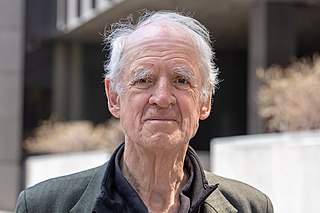A Quote by Rachel
In some basic way, it is our imperfections and even our pain that draws others close to us.
Related Quotes
It is our own pain, and our own desire to be free of it, that alerts us to the suffering of the world. It is our personal discovery that pain can be acknowledged, even held lovingly, that enables us to look at the pain around us unflinchingly and feel compassion being born in us. We need to start with ourselves.
We define our identity always in dialogue with, sometimes in struggle against, the things our significant others want to see in us. Even after we outgrow some of these others—our parents, for instance—and they disappear from our lives, the conversation with them continues within us as long as we live.
Our sense of identity is in large measure conferred on us by others in the ways they treat or mistreat us, recognize or ignore us, praise us or punish us. Some people make us timid and shy; others elicit our sex appeal and dominance. In some groups we are made leaders, while in others we are reduced to being followers. We come to live up to or down to the expectations others have of us.
Before making peace, war is necessary, and that war must be made with our self. Our worst enemy is our self: our faults, our weaknesses, our limitations. And our mind is such a traitor! What does it? It covers our faults even from our own eyes, and points out to us the reason for all our difficulties: others! So it constantly deludes us, keeping us unaware of the real enemy, and pushes us towards those others to fight them, showing them to us as our enemies.
The love of God again makes us free, for it draws us to set a low value on those things wherein we are subject to others - our wealth, our position, our reputation, and our life - and to set a high value on those things which no man can take from us - our integrity, our righteousness, our love for all men, and our communion with God.
One of the fundamental demonstrations of our natural instinct to Bond with each other is a will to give. Rather than domination, our most basic urge is to reach out to another human being, even at a cost to ourselves. Giving to others-the urge to empathize, to be compassionate, and to help others altruistically-is not the exception to the rule, but our natural state of being. Our impulse to connect with each other has developed an automatic desire to do for others, even at personal cost. Altruism comes naturally to us. It is selfishness that is culturally conditioned and a sign of pathology.
Some of our struggles involve making decisions, while others are a result of the decisions we have made. Some of our struggles result from choices others make that affect our lives. We cannot always control everything that happens to us in this life, but we can control how we respond. Many struggles come as problems and pressures that sometimes cause pain. Others come as temptations, trials, and tribulations.
Books are never harmless...they either strengthen us or they weaken us in our faith. Some of them do this even as they entertain us, others as they teach us. In an invisible way their teaching penetrates into our hearts and souls, to continue its work inside, and we inhale the spirit of these books as healing or poisonous vapors. They can bring the greatest benefits and the greatest ruin, for from their ideas that they spread come the deeds of the future.
































